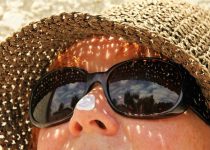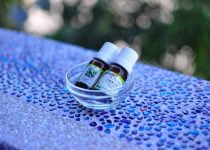Acne-Free Skin: The Holy Grail Of Dermatology
There's nothing quite like the satisfaction of waking up to a face that's clear, radiant, and blemish-free. But for many people, achieving that elusive skin nirvana is easier said than done. Acne, a common skin condition that affects people of all ages, can leave your skin looking red, irritated, and spotty. If you're one of the millions struggling with acne, don't despair. There are plenty of things you can do to improve your skin's health and achieve the clear complexion you've always dreamed of.
**Understanding the Causes of Acne**
Before you can effectively treat acne, it's important to understand what causes it. Acne is caused by a combination of factors, including:
* **Excess sebum production:** Sebum is a natural oil that helps keep your skin moisturized. However, too much sebum can clog your pores and lead to the formation of blackheads and whiteheads.
* **Bacteria:** The bacteria Propionibacterium acnes (P. acnes) lives on everyone's skin. However, in people with acne, P. acnes can overgrow and cause inflammation.
* **Inflammation:** When P. acnes overgrows, it triggers an inflammatory response that leads to the formation of pimples and cysts.
**How to Treat Acne**
There are a variety of treatments available for acne, depending on the severity of your condition. Some of the most common treatments include:
* **Over-the-counter (OTC) treatments:** OTC acne treatments are available in a variety of forms, including cleansers, gels, lotions, and pads. These products typically contain ingredients that help to reduce inflammation, kill bacteria, and unclog pores.
* **Prescription treatments:** If OTC treatments don't work, your doctor may prescribe stronger medications, such as antibiotics or retinoids. These medications can be more effective than OTC treatments, but they can also cause side effects, such as dryness, irritation, and sun sensitivity.
* **Chemical peels:** Chemical peels are a type of facial treatment that uses a chemical solution to remove the top layer of skin. This can help to improve the appearance of acne scars and prevent future breakouts.
* **Laser therapy:** Laser therapy uses a concentrated beam of light to target and destroy P. acnes bacteria. This can be an effective treatment for severe acne, but it can be expensive and may require multiple treatments.
**Preventing Acne**
While there's no guaranteed way to prevent acne, there are a few things you can do to reduce your risk of developing it, including:
* **Wash your face twice a day:** Washing your face twice a day with a gentle cleanser can help to remove dirt, oil, and bacteria that can lead to acne.
* **Avoid touching your face:** Touching your face can transfer bacteria from your hands to your skin, which can cause breakouts.
* **Use non-comedogenic products:** Non-comedogenic products are less likely to clog your pores and cause acne. Look for this label on cosmetics, skin care products, and hair care products.
* **Eat a healthy diet:** Eating a healthy diet can help to improve your整体健康状况and reduce your risk of developing acne. Focus on eating plenty of fruits, vegetables, and whole grains.
* **Get enough sleep:** Getting enough sleep can help to reduce stress, which can trigger acne breakouts. Aim for 7-8 hours of sleep per night.
**When to See a Doctor**
If you're struggling with acne, it's important to see a doctor if:
* Your acne is severe or doesn't respond to OTC treatments.
* Your acne is causing you pain or scarring.
* You have other symptoms, such as fever or chills.
Your doctor can help you determine the best course of treatment for your acne and help you achieve the clear skin you've always wanted.


